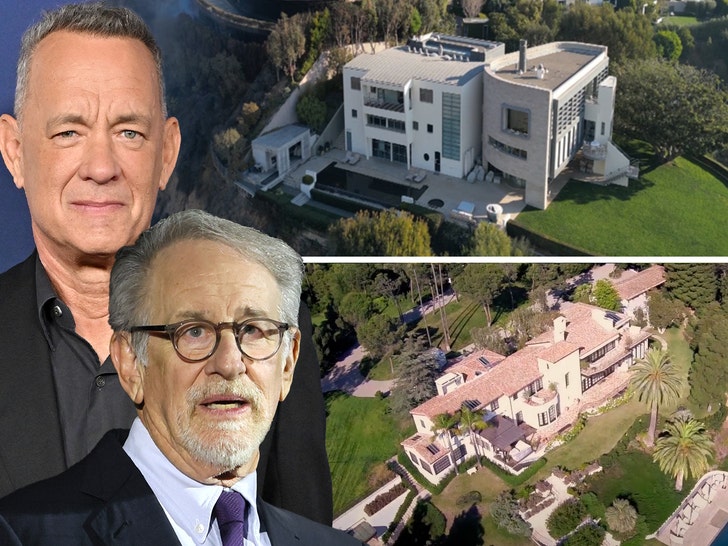One odd night time in a working-class neighborhood of the Algerian capital, a suspicious automobile drives alongside a avenue the place a number of youngsters play carelessly. The driving force lures a younger lady to the window and violently pulls her inside earlier than driving away because the lady’s brother appears on in despair. The unsettling incident, impressed by actual occasions, ignites the often tense, if principally dramatically inert social thriller “Algiers,” the nation’s Oscar worldwide characteristic submission, from writer-director Chakib Taleb-Bendiab.
Tensions are already working excessive on this city resulting from water shortages (as a radio announcement informs), and the information {that a} predator is roaming round provides gas to the fireplace with irate native males looking for the offender on their very own. The official investigation faces its personal obstacles, as inspector Sami Sadoudi (Nabil Asli) clashes with Dr. Dounia Assam (Meriem Medjkane), a psychiatrist who makes a speciality of post-traumatic issues. Their disparate approaches should reluctantly come collectively to seek out the kid throughout the first 48 hours (after which the possibilities of discovering her alive lower drastically).
Primarily based on the rattled boy’s testimony, Dounia quickly concludes that the perpetrator has doubtless completed this earlier than. Her idea appears speculative at finest, however Medjkane’s portrayal of dedication intrigues Sadoudi. The plot strikes alongside pushed by a number of different flimsy conjectures viewers are requested to simply accept with out substantial proof apart from her handy discoveries. It’s not that something totally implausible happens, however the effectivity with which the items of the puzzle come collectively feels narratively contrived. The neighbors suspect a disabled homeless man who lives in a close-by parking zone, however as soon as that lead fails to yield concrete outcomes, Medjkane’s educated inferences achieve prominence.
By Sadoudi’s facet is Khaled (Hichem Mesbah), a grizzled veteran officer who was round in the course of the civil struggle of the early Nineteen Nineties and believes that police are justified to make use of power towards their adversaries. That righteous, above-the-law mentality takes maintain of him throughout an important second late within the disturbing case. Nevertheless, if Bendiab’s intentions have been to extrapolate the unrest that occurred over 30 years in the past because the supply of present social ills in Algeria, the writing doesn’t actually get that time throughout — a minimum of not for these unfamiliar with the specifics of what transpired then. That ideological divide between Sadoudi and Khaled is most potently represented in a morally difficult stand-off with a possible killer within the aftermath of a grotesque discovery. Cinematographer Ikbal Arafa focuses his digicam solely on the eyes of the 4 males concerned, every hoping for a special final result
That Taleb-Bendiab crops a number of thematic angles however doesn’t comply with by means of with any of them renders “Algiers” extra schematic than hard-hitting, and leaves all of its characters’ motivations unexplored. What’s lacking from “Algiers” is an incisive examination as to why this second and this metropolis created the circumstances for a monstrous particular person to function with such impunity for greater than 20 years. There are hints at what the reply may very well be, however the connections between these distinct points and the unlucky occasion on the heart of the movie appear tenuous. The absence of cohesiveness finally diminishes its emotional influence.
Bendiab’s protagonists really feel like greater enigmas than the case they’re determined to unravel, archetypes whose personalities and private histories are solely superficially revealed. Medjkane’s believably gloomy efficiency communicates the gravity of what’s at stake. The revelation that she was just lately a sufferer of an assault and that her father died ought to presumably assist one perceive her resolve. But her funding is undermined by how ambiguously and hurriedly it’s disclosed. In the meantime, Asli loosely sketches Sadoudi by quoting “The Artwork of Struggle” and airing his grievances with the regulation enforcement institution. One can assume that his irritable demeanor derives from the stress of the job in a chaotic metropolis, however there’s little else to glean from his conduct. To an extent, Khaled’s clear eagerness to depart the power and to make his personal guidelines feels radical.
Confirming one of many screenplay’s shortcomings, Bendiab’s “Algiers” by no means returns to the lady’s brother or the lady who cares for them, nor does it dig into who the opposite suspects have been and the way they have been roped into the crime. The ultimate minutes depend on Dounia’s heroism to wrap the ordeal with an unearned neatness. Close to the conclusion as Sami and Dounia go into the night time, protesters stroll round them, gathering to demand entry to water. It’s in that scene that Bendiab succeeds in capturing a captivating reality about city areas: The story of the lacking child is just one amongst hundreds of thousands on this complicated atmosphere, and for many, it’s going to go unnoticed. Nonetheless, regardless of some compelling situations, “Algiers” fails to congeal right into a consequential portrait of a metropolis and its afflictions.
The post An Sometimes Tense Social Thriller appeared first on Allcelbrities.








